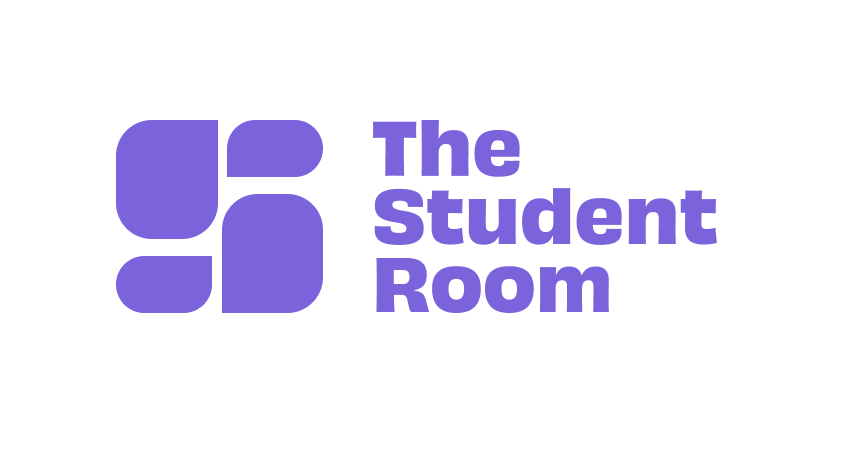History tells us that when the economy goes down, postgraduate applications go up. After the 2008 financial crisis, postgraduate student numbers grew by an average of 4.4% per cycle between 2007/8 and 2010/11 (HESA). Between the 2011/12 to 2019/20 cycles numbers adjusted back down, then returned to a trend growth rate of around 2% a year. So can we expect a surge in postgraduate applications in our current economic climate?
The short answer is yes, however in 2021 the economic outlook is more complicated. This time our economic downturn is compounded by the unprecedented effects of Brexit and the Covid-19 pandemic. These have each had far-reaching implications for international recruitment and relations, travel, job security, accommodation, teaching methods and students’ finances.
This blog will look at some of the key factors affecting postgraduate demand, postgraduate funding and the competitor landscape, reasons that applicants are drawn to postgraduate study, and the trends we are seeing in students’ postgraduate course and career choices.
We will cover:
- The economy and global factors impacting postgraduate recruitment
- Postgraduate poll on The Student Room
- How career aspirations shifting course choices
- A financial balancing act: should universities be threatened by alternatives?
The economy and global factors impacting postgraduate recruitment
In terms of the international market, both Brexit and Covid-19 have weakened sterling against the euro and the dollar. In the short term, this makes international study cheaper for Asian students (who tend to manage their currency against the dollar) and for EU students. However, sterling is on a recovering trend (perhaps due to the vaccine roll-out, falling hospital admissions and hints that the UK economy may reopen later in the spring) – so the window of opportunity to entice international students with attractive fees may be narrowing. For EU students, Brexit also means no longer having access to student finance, paying higher fees, and the need to obtain visas. Universities can make postgraduate study more attractive to EU students by providing clear information on how to fund their studies (including employment opportunities during and after their course) and by reassuring students that the UK is still a safe and welcoming environment for students from the EU.
Growth in domestic postgraduate recruitment looks very promising. We know that when the economy contracts, firms will often respond by reducing internships, placements and graduate hiring – which is an issue for students, but good for postgraduate recruitment. Our recent research revealed that over 60% of students are worried about finding a job when they graduate, compared with fewer than 30% prior to the pandemic (Navigating Changing Options report). The scarcity of job opportunities is a powerful disincentive for UK graduates to enter the labour market. Instead, they are looking to postgraduate study as a way to improve their employment prospects in a more competitive marketplace. It may be that an unintended consequence of the Covid-19 pandemic is a boost to qualifications and skill levels across the UK. Covid-19 has also drastically reduced international travel, confined people to their homes and resulted in a huge portion of the population being furloughed – which means education is one of the few options left to occupy people’s time.
Looking at some trends on The Student Room, we can see huge year-on-year growth in prospective postgraduate traffic and engagement:
January 2021 vs January 2020
- +59% posts (3,259 posts) and +27% pageviews (369,834 pageviews) in Postgraduate applications forum
- +38 posts and +4% pageviews in Mature students forum
- +2% posts and +18% pageviews in Postgraduate support forum
- +306% posts and +33% pageviews in International postgraduate study forum
- +7% pageviews in Postgraduate articles

Postgraduate poll on The Student Room
We recently asked our student community:“Why are you considering a postgraduate course?”
Although 38% said that they had always planned to do a postgraduate qualification, the remaining 62% gave reasons that were directly related to the economy and the pandemic:
- 25.79% “I want to make myself more employable because of the difficult job market”
- 10.71% “I finished my undergrad and don’t want to enter the job market in the pandemic”
- 10.71% “The pandemic has made me re-evaluate my career path”
- 7.54% “I lost my job in the pandemic”
- 7.14% “I was meant/wanted to go traveling, but can’t”
(Data taken: 10 February 2021)
A combination of job insecurity and restricted travel opportunities has pushed a new group of students towards postgraduate study. Again, assuming that the UK moves out of the pandemic once the vaccine has been successfully rolled out, universities have a limited window of time to take advantage of this opportunity. We saw that after the 2008 financial crash, postgraduate activity spiked then returned to trend, and this may be the case here too.

How career aspirations are shifting course choices
According to HESA data, the ten most popular postgraduate subjects in the 2019/20 cycle were:
- 20% – Business and management
- 12% – Subjects allied to medicine
- 11% – Education and teaching
- 9% – Social sciences
- 6% – Engineering and technology
- 5% – Law
- 5% – Computing
- 4% – Psychology
- 4% – Creative arts and design
- 3% – Biological and sport sciences
But what does our onsite activity tell us about the 2020/21 cycle and beyond? Firstly, since the pandemic, we’ve seen a sustained increase in interest in careers and courses that support roles in the NHS, health or mental health-related fields. ‘Subjects allied to medicine’ was already one of the most popular postgraduate choices, and we expect this to grow further in coming cycles based on student activity. Here’s the data which supports this:
January 2021 vs January 2020
- +92% posts and +52% pageviews (1,324,532) in Medical Schools forum
- +253% posts and +18% pageviews (300,678) in Medicine forum
- +101% posts and and +53% pageviews (268,165) in Dentistry forum
- +234% posts and +66% pageviews (61,812) in Biological and life science forum
- +51% posts and +19% pageviews (37,852) in Psychology
- Other growth forums include: Healthcare, Pharmacy, Nursing and midwifery, Veterinary medicine, Social work, Physiotherapy and Occupational Therapy, Optometry, and Physics, Chemistry and Natural sciences
“I was thinking about wanting to do a masters. What can I do a masters in with [a degree in] mental heath nursing?” – User, The Student Room
As the student poll above suggests, employability is a key factor driving increased demand for postgraduate courses, so we’ve also looked at trends in our career forums to gain insight into growth areas. In our Careers forums, we’ve seen a significant uplift in traffic and engagement on these forums:
- +68% pageviews (416,042) in Public Sector forum
- +36%pageviews (395,348) in Careers sectors and graduate employment forum
- +24% pageviews (97,457) in Finance and accountancy forum
- +22% pageviews (120,716) in Teacher training, teaching and education forum
- +11% pageviews ( (16,195) in Engineering and Science forum

A financial balancing act: should universities be threatened by alternatives?
There is an increasing number of professional development courses available. The Government is launching skills courses, a ‘Lifetime Skills Guarantee’ and has pledged to spend £2.5bn on a lifelong learning package, while CPD, MOOCs, online providers (e.g. Coursera) and colleges are also jostling for students.
So will these courses replace the appetite for traditional postgraduate study at universities? We don’t think so.
As we have seen, much of the growth in interest in postgraduate study has been related to careers which demand high-level professional qualifications, such as Medicine. Generally speaking, alternative educations providers are not competing in the same arenas.
That said, money is certainly a barrier to entry for prospective postgraduate students. Even with a Masters loan, the rising cost of tuition leaves most students with little to live on. The government has indicated that it will make higher education loans more flexible, enabling learners to study later in life, but for now, there is still work to do on raising awareness about funding options such as scholarships, grants, bursaries and charity funding for students from disadvantaged backgrounds.
“I would like to ask if after finish my degree i can apply for Postgraduate Loan, either on full time or part time? How will be the repayments of my degree and then my postgraduate?” – User, The Student Room
The University of East Anglia sponsored this article on The Student Room about funding postgraduate study.

What prospective postgraduate students want from education providers
Interest in postgraduate education continues to grow, but so too do applicants’ demands for information. Universities have a key role to play in making postgraduate study accessible to a wider audience by answering students’ questions about obtaining funding, career prospects, how the education will be delivered and how challenging the content will be.
“Anyone know when SFE applications open for postgrad?” – User, The Student Room
“How big is the jump undergraduate study to postgraduate study? I want to do a MSc after my current degree…Also, is it worth taking a year out first before I pursue this route? I’m kind of against this idea as I don’t know if I’ll be able to secure a job with the way this pandemic is going 🙄” – User, The Student Room
We know that lockdown measures are unpredictable and ever-changing, making it difficult for universities to manage prospective and current students’ expectations. However, universities are being called to adapt with ever-more innovative strategies. A symbiotic and robust relationship with careers services, assessment centres and employers is a key step that universities can take to attract prospective students who are studying as a route into careers. For example, universities could make students aware of opportunities to get funding from employers.
Similarly, developing digital resources – virtual open days, online interviews or Q&As with tutors, webinars and more – will become increasingly important.
Sign up to our mailing list for more insights like this.
If you have any questions about students or boosting your postgraduate recruitment, here’s how you can get in touch with our team:
0800 999 3222
hello@thestudentroom.com
Sources
Higher Education Statistics Agency: Who’s in HE?
Navigating Changing Options report: “The impact of coronavirus on 2021 and 2022 UK undergraduate decision-making”
Google analytics, The Student Room, 1 – 31 January 2021

